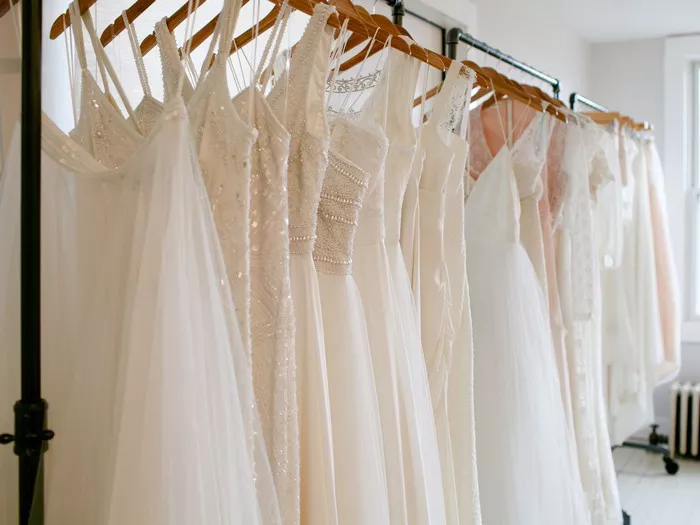SCRANTON, Pa. — For nearly four decades, Tunis Bridal Shoppe has been a cornerstone of the Scranton community. But owner Cindy Fisch says that despite weathering many storms, the last five years have tested her business like never before.
“I’ve seen a lot in 37 years—we even made it through COVID, which was the biggest challenge until now,” Fisch explained. “But these tariffs have created a whole new level of uncertainty.”
The tariffs Fisch is referring to stem from the Trump administration’s trade policies, specifically those levied on goods imported from China. The impact on bridal shops like Tunis has been profound, as a significant majority of wedding gowns sold in the United States are manufactured in China.
Now, Tunis Bridal Shoppe is facing tariffs of up to 55 percent on imported dresses, a cost that varies depending on the dressmaker and often isn’t known until the invoice arrives.
“Each designer absorbs a different portion of the tariff,” Fisch said. “Whatever amount they don’t absorb, they pass on to us. We don’t mark it up—we just pass that cost directly to our brides. Our goal is to break even, not profit from this.”
In an effort to support her customers, Fisch is absorbing the full tariff charges for brides who ordered their dresses before the tariffs were implemented—even as those dresses arrive just in time for the busy summer wedding season.
To help new customers navigate the rising costs, Fisch is encouraging brides to consider off-the-rack options. Tunis Bridal Shoppe will also participate in the National Bridal Sale in July, aiming to clear existing inventory unaffected by the new tariffs.
At the same time, Fisch and fellow bridal retailers across the nation are actively lobbying for an exemption. Through collaboration with manufacturers and the National Bridal Retail Association, the industry is seeking relief from the financial burden.
“We’re staying in constant communication with our manufacturers and industry leaders,” Fisch said. “We’re working with senators and congressmen to make the case that this is a specialty market that cannot be sustained with domestic production alone. We’re hopeful we’ll be heard.”
As wedding season peaks, the struggle of small bridal shops like Tunis underscores the broader ripple effects of international trade policy—felt deeply by local businesses and the brides they serve.


